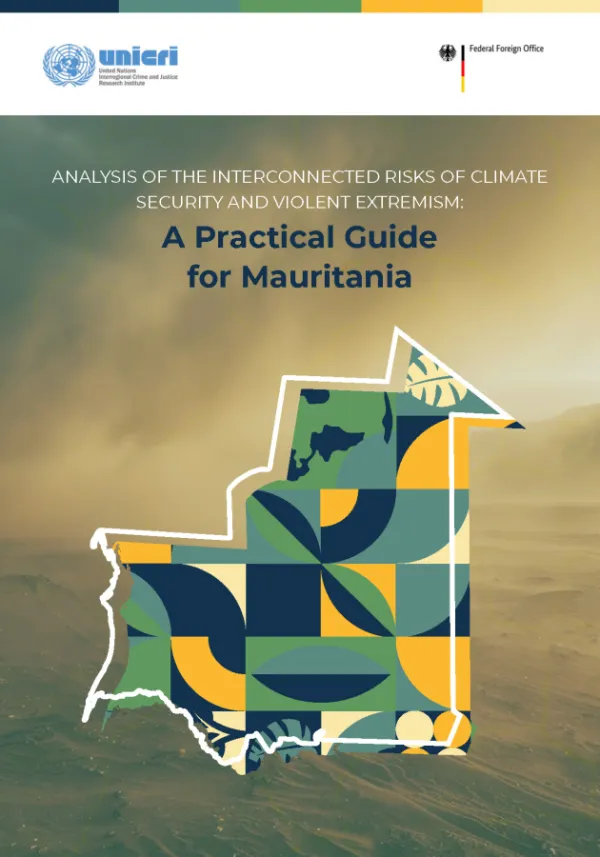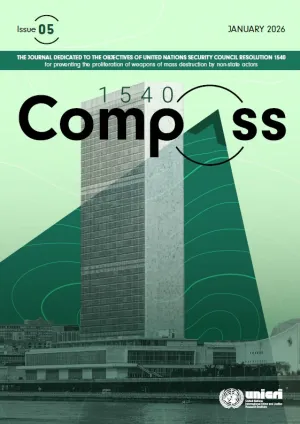UNICRI’s latest methodology, "Analysis of Interconnected Climate Security and Violent Extremism Risks: A Practical Guide for Mauritania," was developed with the generous financial support of the German Federal Foreign Office. This practical and gender-responsive tool provides a structured framework for analysing the complex intersections of climate change and violent extremism risks in Mauritania, enabling more informed, inclusive, and resilient responses.
Developed and refined based on insights and recommendations gathered from regional and national workshops in Dakar and Nouakchott, this methodology reflects the collective expertise of key practitioners and experts, fostering collaboration and the exchange of best practices.
This methodology serves four main objectives:
Strengthening the capacity of local and national actors to identify and respond to the interconnected risks posed by climate change and violent extremism in Mauritania, using empirical evidence.
Guiding stakeholders in designing and implementing policies and initiatives that effectively mitigate these interconnected risks, fostering sustainable peace and community resilience.
Promoting local ownership and multi-level collaboration among local, national, regional, and international actors to develop context-specific and coordinated responses.
Supporting inclusivity and gender sensitivity by aligning with the Women, Peace, and Security agenda, ensuring that the needs of women, youth, and marginalized groups are integrated at every stage of risk assessment and response.
Structured across three interconnected chapters, the methodology offers a step-by-step approach to analysing climate security and violent extremism risks while promoting context-sensitive and inclusive responses.
Chapter 1 lays the foundation by examining regional and national contexts, mapping key risk pathways, and reviewing existing institutional frameworks and initiatives.
Chapter 2 provides a structured process for risk assessment, from selecting target areas to conducting data collection through literature reviews and participatory fieldwork, culminating in risk mapping to guide decision-making.
Chapter 3 builds on this analysis to support the design and implementation of targeted interventions, emphasizing stakeholder engagement, sustainable governance mechanisms, and inclusive strategies to ensure effective responses to climate security and violent extremism risks in Mauritania.
Download the methodology now and watch the video below to learn more.



